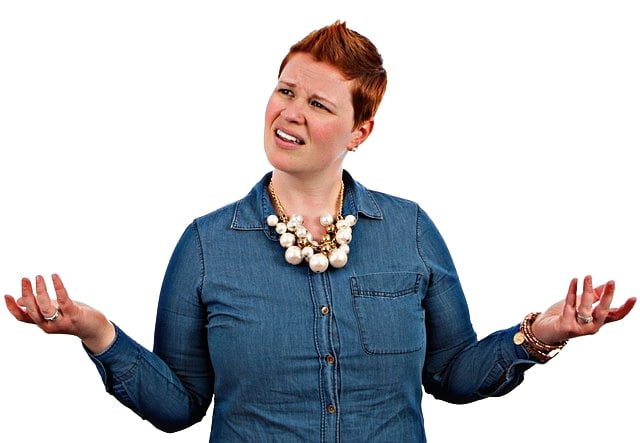Strategies & Tips for Enhancing Well-being in elderly people.
Key Facts about senior’s mental health
- Mental health issues are so common in elderly population,
- Many problems in seniors i.e anxiety, depression, schizophrenia, dementia remains ignored or undiagnosed or untreated.
- Many risk factors involved for this i.e concern about increasing age, long term illness, financial issues, ignored by their loved one, or loss of their loved ones, limited mobility,
- Many co-morbidities i.e diabetes, hypertension, bronchial asthma, COPD, also contribute in increasing mental health issues.
- Social isolation & loneliness also play an important role to increase problem regarding mental health.
- Lack of social connection can also increase risk of depression, anxiety, and cognitive decline.
- Limited access to mental health services and awareness, affordability, transportation, also can be a challenge for elderly people who want to seek help from health care experts.
- WHO says that By 2030, one in six people in the world will be aged 60 years or over.
What are the Importance of Early Diagnosis & intervention?
Early diagnosis & detection and intervention for mental health illnesses are important. Timely support, proper treatment, and creating a supportive environment play vital roles in the maintaining mental health in the elderly people.
What is the Role of family members in this case?
Their loved ones i.e Family members,friends, and Doctor, play a vital role in diagnosis of mental health health issues, their support, care towards seniors, and ensure for giving proper care for elderly person.
A great Approach to Care who’s dealing with mental health issues:
A proper approach towards senior’s social, physical, emotional, and cognitive aspects is necessary for promoting mental health and well-being in the elderly population.
What are the Risk Factors of mental illnes in elderly people?
As age increases many factors influence person’s health condition, wich ultimately responsible for mental illnes also like social isolation, chronic health conditions, loss of loved ones, limited mobility, financial conditions, and changes in daily life style, increases the risk of mental health issues in older adults.
What is the relation between Comorbidity with Physical Health & mental health?
Mental health conditions often co exist with physical health issues among the senior citizens.And due to long term co morbidities they can impact on person’s mental health also.
Underreporting and Stigma causes mental illness worsen
Usually older adults under report mental health symptoms due to stigma and/Or a lack of awareness about available mental health supports. This also can lead to stay untreated and worsen diseases and mental illnes.
What is the Impact of Loneliness on mental health?
Loneliness & social isolation also affects significantly on the mental health of elderly, loneliness and lack of socialisation can affect on elderly population’s mental health and can increases risk of depression, anxiety, and cognitive decline.
What are the symptoms of mental illnes in elderly?
Symptoms might included
- persistent sadness
- Feelings of hopelessness
- loss of interest in activities once enjoyed
- changes in appetite or weight
- sleep disturbances
- fatigue
- difficulty concentrating
- Physical complaints without a clear cause might also be present.
Anxiety Disorders
Symptoms may be initiate as excessive tension, restlessness, irritability, muscle pain, sleep disturbances, and difficulty in controlling feelings of fear & tension. Physical symptoms also can be seen like heart rate increase, sweating or perspiration, &/or other symptoms may be seen.
Cognitive Disorders (e.g., Dementia)
Sometimes mental illnes present as a memory loss, difficult in completing tasks, judgement impairment, change in personality, confusion etc.
Psychosis:
Some older adults might experience hallucinations, delusions, or disorganized thinking, which could indicate underlying conditions such as schizophrenia or other psychotic disorders.
Drug and alcohol abuse :
Senior citizen may misuse,drugs, prescription medicine,alcohol, prescription medications. Symptoms may be present as a behaviour changes, responsibility negligence, staying away from family and friends.
Thoughts of Suicide or Behaviors changes:
When elderly feels hopelessness, and helpless they can often try to do suicide, wanted to do suicide or end their life.
Change in Personality :
Due to mental illnes sometimes symptoms manifest as a agitation, become calm or more aggressive , suspicious activity etc.
What are the physical symptoms of mental health issues or mental illness?
- Chest pain
- Anxiety
- Increase breathing rate
- Increase heart rate
- Hypertension
- Hyperventilation
- Pain in over all body
- Headache
- Indigestion
What is the treatment of mental illnes in elderly people?
Treatment of mental illnes is not simple as physical illness, it requires medication, psychotherapy, group therapy, occupational therapy, social support, education, awareness, regular check up and follow up etc.
- Medication of mental illnes in elderly:
Psychiatrists will evaluate and check the patient and they may prescribe medications for management of symptoms of diffrent different mental health conditions. These medications might include antidepressants, anti anxiety or anxiolytic medications, antipsychotics, mood stabilizers, or medications to correct cognitive symptoms in conditions like dementia.
2. Psychotherapy:
There are lot of psychotherapy treatment options available i.e cognitive-behavioral therapy (CBT), occupational therapy, supportive therapy, or personal therapy, can help elders to manage with mental health challenges. Psychotherapy sessions aim to improve Mental well being and mental health.
3. Group Therapy (Support Groups):
This includes Participation in group therapy sessions for older adults allows individuals to share their good experiences, receive moral support, and learn strategies and take experience from others facing similar challenges.
4. Lifestyle Modifications:
This includes Encouraging lifestyle changes,that can significantly impact on elder’s mental health. Regular exercise, balanced diet, adequate(6-8 hrs) sleep, stress reduction techniques i.e meditation etc can be complement for other treatment approaches.
5. Social Support from friends & family:
Good social connections and engagement in family and friends are crucial.this will helps to reduce feeling of loneliness, stress, anxiety and depression.
6. Support from caregiver and Education :
For elders with mental health illness, loved ones play a vital role in dealing with these issues.Education and support from their loved ones helps them better understand the condition, they can better deal with challenges.
7. Rehabilitation techniques:
For cognitive disorders i.e dementia, cognitive rehabilitation programs will improve memory, improve daily activity, reduce dementia problem, better functioning in daily routine life.
8. Monitoring on regular basis and Follow-ups:
Close monitoring by psychology professionals confirm & ensure treatment effectiveness, helps to manage side effects of medications, and allows for timely adjustments in the treatment plan as needed.









